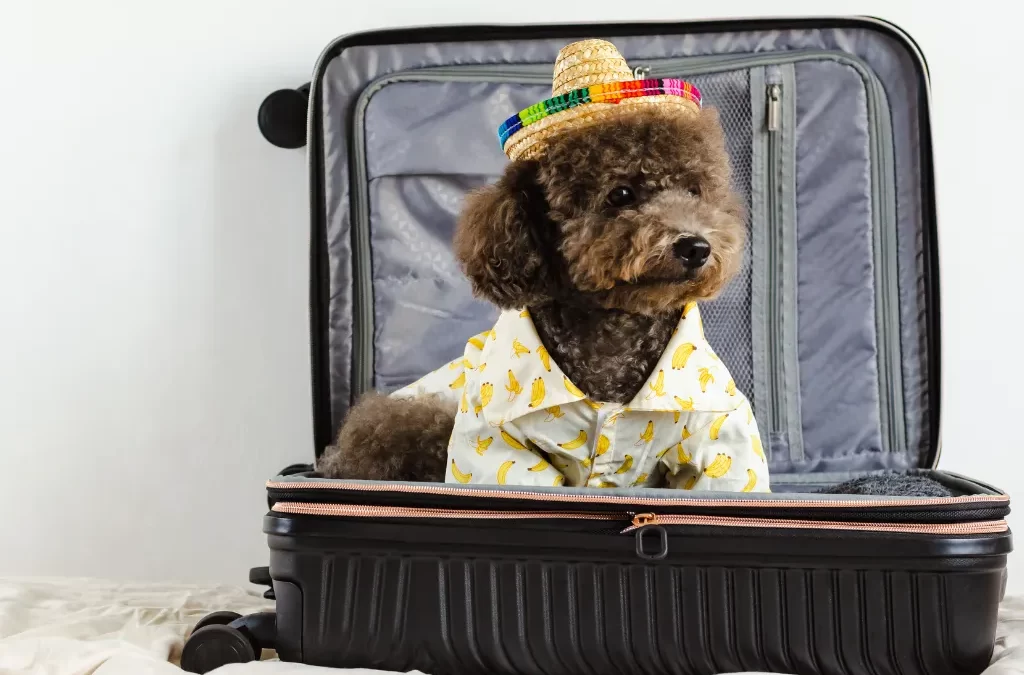The popularity of dog boarding services has been on the rise as pet owners seek reliable and caring options for their furry companions while they’re away.If you’re considering dog boarding for your beloved pet but have a host of questions, you’re not alone.
In this article, we’ll delve into the frequently asked questions surrounding the boarding process, helping you make informed decisions about your dog’s care.
Is Dog Boarding the Right Choice for Your Pet?
Before deciding on whether or not to board your dog, it’s essential to evaluate whether it’s the right choice for your four-legged friend. Understanding your dog’s temperament, activity level, and individual needs is paramount.
Assessing your dog’s temperament and needs: Not all dogs thrive in a boarding environment. Some may become anxious or stressed when separated from their owners. Assess your dog’s personality and consider how they’ve responded to similar situations in the past.
Comparing boarding with alternative care options: Boarding isn’t the only option. Consider alternatives like hiring a pet sitter or relying on friends and family. Compare the pros and cons of each to determine which suits your dog’s unique requirements.
Factors to consider before opting for boarding: Think about the duration of your absence, your dog’s health, and their socialization skills. These factors will influence your decision and help you choose the right care option.
What Should I Look for in a Dog Boarding Facility?

Choosing the right boarding facility is crucial for your dog’s safety and comfort. Here’s what you should look for when evaluating potential facilities:
Facility Accreditation and Certifications
Ensure that the facility holds necessary licenses and accreditations. These certifications indicate that the facility meets specific standards for animal care and safety.
Safety and Security Measures
Inquire about security features, such as fencing, surveillance, and access controls. A secure environment is essential to prevent escapes and maintain a safe atmosphere.
Experienced and Trained Staff
Knowledgeable and compassionate staff members are vital. Ask about their qualifications, training, and experience in handling dogs of various breeds and temperaments.
Reviews and Testimonials
Research online reviews and ask for references from current clients. A reputable facility will have positive feedback and transparency about their operations.
How Should I Prepare My Dog for Boarding?

Preparing your dog adequately for boarding helps ensure a smooth transition. Pay attention to these important considerations:
Updating Vaccinations and Health Requirements
Ensure your dog’s vaccinations are up to date, and provide the necessary records to the boarding facility. Discuss any health concerns or special needs with the staff.
Pack Essentials and Familiar Items
Pack your dog’s food, medications, and familiar items like toys or blankets. These familiar items can provide comfort and reduce anxiety.
Discussing Dietary and Medication Needs
Communicate your dog’s dietary preferences and any required medications. Be clear about dosage instructions and special dietary needs.
Pre-Boarding Socialization and Training
If your dog isn’t accustomed to socializing with other dogs, consider enrolling them in training or socialization classes before boarding. This can help prevent conflicts and ensure a positive experience.
What is a Typical Day in a Dog Boarding Facility Look Like?

Understanding what a typical day in a dog boarding facility looks like can ease your concerns about your pet’s well-being.
Morning Routines and Exercise
Most boarding facilities start the day with exercise and playtime. Dogs are often grouped by size and energy level for safe and enjoyable interactions.
Mealtime and Dietary Considerations
Meals are typically provided on a schedule that aligns with your dog’s regular feeding times. Be sure to communicate any dietary restrictions or allergies.
Group Play and Socialization
Socialization with other dogs is a significant part of the boarding experience. Trained staff supervise playtime and ensure it remains safe and enjoyable for all dogs.
Rest and Relaxation Periods
Dogs also need downtime. They are given opportunities to rest and recharge in their own designated spaces.
Should I Be Worried About the Health of My Dog While Boarding?

Ensuring your dog’s health and safety is a top priority for reputable boarding facilities.
Disease Prevention and Sanitation Protocols
Inquire about the facility’s sanitation practices and disease prevention measures. Well-maintained cleanliness and strict protocols reduce the risk of illness.
Emergency Procedures and On-Call Veterinarians
Ask about the facility’s emergency procedures. They should have a plan in place for unexpected situations and access to a nearby veterinarian in case of medical issues.
Addressing Medication and Special Care Requirements
If your dog requires medication or special care, provide detailed instructions to the staff. They should be well-equipped to handle your dog’s specific needs.
Will There Be Any Communication from the Facility During My Dog’s Stay?
Staying informed about your dog’s well-being during their stay is crucial.
Reputable boarding facilities provide regular updates on your dog’s activities and behavior. They should have a system for you to check in or receive notifications.
Discuss how the facility handles unexpected situations, such as medical emergencies or behavioral issues. Knowing they have a plan in place can offer peace of mind.
Maintain open communication with the boarding staff. Share any changes or concerns, and don’t hesitate to ask questions.
What Are the Costs and What is the Booking Process?
Understanding the financial aspect and booking procedures is essential for a stress-free experience:
Boarding costs can vary based on factors like location, services included, and the duration of your pet’s stay. Understand the pricing structure and any additional fees.
Plan ahead and book early, especially during peak times. Discuss availability, reservation requirements, and cancellation policies with the facility.
Inquire about payment options and any additional services offered, such as grooming or training. These services can enhance your dog’s experience but may come at an extra cost.
What Do I Need to Know About Bringing My Dog Home from Boarding?

Transitioning your dog back into home life after boarding is essential for their well-being:
Easing Your Dog Back Into Home Life
Your dog may need some time to readjust to home life. Be patient and offer familiar routines and surroundings to ease their transition.
Addressing Behavioral Changes
Monitor your dog for any behavioral changes. If you notice issues like separation anxiety or increased aggression, consult with a professional trainer.
Follow-Up Care and Tips for Future Boarding
Discuss any post-boarding care instructions and follow-up appointments with your veterinarian. Learn from the experience to make future boarding experiences even better for your pet.

